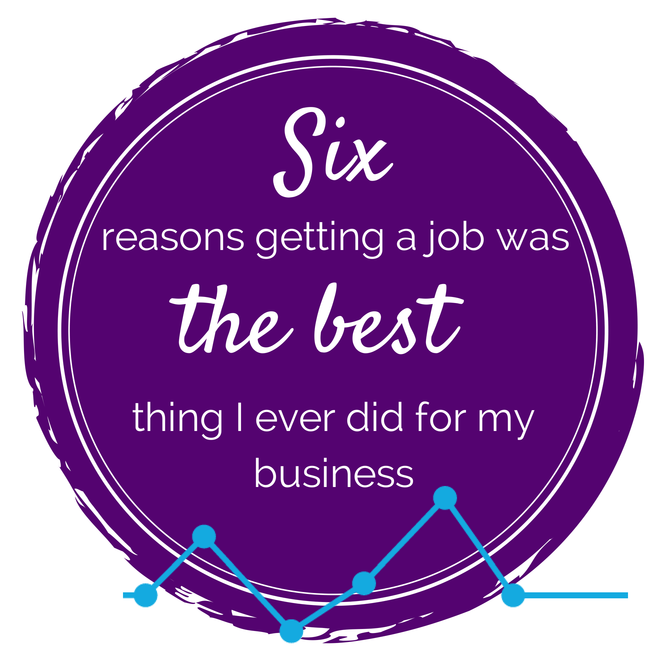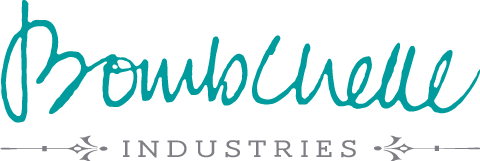
In case you’re new around here, one week from today is the two monthaversary of me returning to self-employment/freelancing/whatever. I got super, super burned out on working for myself, got a “real job”, spent almost exactly six months (closer to 6.5 months) working at a real job, and then returned to self-employment for a myriad of reasons.
To my surprise, I found the break incredibly energizing and it was easily the best thing I’ve ever done for my business. I went back to my hustle to find things taking hold a lot faster than I expected.
I’m not the only one who’s had the that experience:
Chase Reeves has talked about it on the Fizzle podcast (which btw is absofreakinglutelyawesome) and Liam at FreelanceLift also had a similar journey. Based purely on anecdotal evidence, I’m guessing it’s way more popular than the “job = failure” mindset would let on.
I’m not sure how universal the reasons are, but here’s why I’m really grateful I decided to get a job:
#1. It forced me to ruthlessly prioritize
I struggled a lot with not only some of the aforementioned mental health issues (more on that in #2) but what I found out later was a severe vitamin D deficiency (I know, it’s funny, you can make all the D jokes you want!) until April-ish. Basically, it meant I was FUCKING EXHAUSTED all the time. I was sleeping 12+ hours a night and still so tired I could hardly focus. I remember more than one point of being so exhausted that I just wanted to sit down and cry out of sheer frustration, like a toddler or something. After dealing with an 8-9 hour workday and a sometimes 2 hour commute, I didn’t have anything left; I was lucky to get 15-30 minutes of work on my own stuff done.
After the deficiency started to get corrected, I still didn’t have a whole lot of time, even if I had more energy. I would do the typical “steal a few moments here and there” thing – work on the commute, typing the newsletter on my iPhone in Evernote and then adding it to MailChimp during my lunch break, but still, I had mayyybe 90 minutes a day to work. So you bet your ass I did work that mattered and actively moved my goals forward. I was a lot more likely to set and stick to both systems and priorities when I already had most of my day taken up.
#2. It got me out of a rut I wouldn’t have got out of on my own
I am a very stubborn, very independent person. I like to do things on my own, I hate asking for help, and if I can manage to slog through something the long and hard way without anyone else ever knowing I’m struggling, I most certainly will, thankyouverymuch. But that wasn’t working this time, with this problem (facing the worst bout of depression I’ve ever had in my life), and I recognized that.
Because here’s the thing: you can’t bootstrap yourself out of depression. It’s like trying to beat yourself to death with arms you don’t have. And then you keep running into jackasses who give you a hammer and say, “Come on, you can fix things if you just use this hammer!” And you’re like, “I DON’T HAVE ANY FUCKING HANDS TO USE THE HAMMER WITH, BRO.”
Anyways. I was in a bad spot. Looking back, if I wasn’t a suicide risk, I was probably pretty close to it. (And I hate saying that in public. I really do. But I think we need to talk about this shit. So I’m saying it anyways.) I didn’t even realize how bad it was until the worst of it had passed (which I think is fairly standard in those situations).
Either way, I had to get very, very far removed from the clusterfuck of stress about my business and stress about my life and depression and anxiety and so on, before I could:
- See how bad it was
- Figure out what to do to fix it
If I had stuck with a business model/service set/etc. that was clearly not working very well for me out of some misguided sense of “getting a job means you’re a business failure, man,” then I don’t know what would have happened. I seriously might not be here today.
I had the exact amount of energy and motivation it took to realize how bad the situation was and take action to remove myself from it, but it was 110% up to me to get out of it, I wouldn’t have. The job did that.
#3. It reconnected me to my motivation
This one is easy: when you’re in a work environment that is not motivated by the same things you are, it’s surprisingly motivating. You want to not be there any more, so you can do things that are aligned with your motivation. And you’re really clear on what you’re motivated by and how you want to run your business when you’re around the opposite. Ta da.
#4. It gave me a whole new view on the disconnect between my what and my how
Shenee wrote an amazing post about this – running our businesses isn’t just about what we do, it’s how we want to live. This is one reason that I know that an actualfax speaking career (as in, a career that is solely speaking), is not for me, because y’all? I’m kind of a homebody. I mean, not really, but I don’t want to travel 2-3 weekends a month. I have a dog and now a kitty and I’d rather be watching Doctor Who with them and my boyfriend instead of sitting in an airport somewhere.
This specifically relates to the day job because, for the last year at least, every time I do that “ideal day” exercise, it looks like writing, teaching, and speaking. Every. Single. Time. That’s what I want my day to consist of, in slightly different doses on slightly different days.
The way I had been focusing my business and money-making efforts, I was basically trying to subsidize the writing and speaking by doing project management and/or consulting work – which can be draining and is often a hard sell, since people know they need a project manager but they often ask for a high-level admin assistant instead and it’s certainly not as concrete of a set of tasks as being a writer. The idea being that eventually teaching and speaking would be the bulk of my income and I’d be able do away with the 1:1 services and write without worrying about making money.
My role at the day job was marketing focused and quite a lot of it was writing. One of the main reasons I was hired was because I’m a good writer. And of course, there’s always room for improvement, but I continued to get positive feedback both on the quality of my writing and on the speed of my turnaround time. Even though I knew that how I wanted to spend my day was writing and speaking and teaching, somehow I never thought – gasp – that I could like…get paid for the writing? With money? And basically have two sides to my business, the writing and the speaking/teaching?
Part of it is that ages ago when I first started freelancing, I did freelance writing, but I was working with not-great clients and content mills. I didn’t realize that I could write things I enjoyed writing and get paid to write them. I probably wouldn’t have figured it out without the job.
#5. It reset to a lot of bad patterns
This basically falls into two categories:
Money. Having consistent income – “you show up and we pay you every two weeks” (what is this magic?!) – got me out of a lot of bad money habits. It also let me know what it feels like when I have consistent income. Which honestly, isn’t something I was very familiar with before. It gave me time to know what it feels like to be regularly pretty much caught up on bills and to not feel like I immediately have to buy something nice (or, you know, food) if I make money, because for all I know it’ll be the last payment I’ll get for three weeks.
It also gave me an ironclad sense of what I’m worth. I knew what the agency’s rates were, that people were paying those rates, and that I was contributing to that. When I left, I was offered a crazy raise (166%, seriously) and not only did I turn it down (which felt really good and affirming), but it just confirmed knowing that I can get paid what I’m worth. My realization was, if I bring enough to the table that a very savvy profit-conscious business owner is willing to pay me that much to stick around, there is absolutely no reason I can’t make an awesome living on my own.
The second category is work. I never realized before how much work I can get done in 4-6 concentrated hours until I worked at the job. When I had work at home days, it wasn’t unusual for me to knock out a full day’s worth of work (for the job) in 2-4 hours. The day job also got me back into the habit of actually tracking my time, which thus far, has been really useful, and I think will continue to be useful in measuring progress against goals, my hourly rate, how long I’m working, etc.
#6. I learned to shut up and take the money
This ties back into #4 but isn’t totally the same. It also sounds really super unethical, so let me explain:
When I realized that I did want to go back to full-time freelancing, I thought I’d probably go back to the PM/consulting/classes/products business model. I started looking at marketing oriented gigs – because I did love most of what I was doing at the agency, just not necessarily everything else that comes with having a full-time job – and came across some writing ones. And I pitched them. And I started getting them. And I was somehow surprised.
When I set up my portfolio site, I imagined that I’d be getting work that’d be split roughly 50/50 between marketing work that included writing, and pure writing gigs. Two months in, everything is writing. I wouldn’t be averse to marketing work but I’m probably going to retool my portfolio to focus almost exclusively on writing, with mentions of marketing work and speaking coming very secondarily.
And the thing is, I haven’t been applying to just writing gigs. I pitch myself for marketing gigs, too. But while I hear back on roughly 40-60% of the writing gigs I send in my info for, I hear back from maybe 10% of the marketing oriented gigs.
It’s interesting because even though the results are so obviously disproportionate, I still have some hardcore resistance to calling myself a freelance writer. I still really want to throw in “and content/social media marketer.” I didn’t want to be “just” a writer. Initially, I was like “ew that market is so saturated and it’s going to be so hard to find gigs” and blah blah blah and yet, my experience has been the opposite.
I think the takeaway here is:
- If people consistently compliment you on something
- If something is easy to you
- If you hear “you’re such a good _____”
- If you do a couple of things but find that it’s a lot easier for you to get paid for one of them
- If you’re surprised that something is such an easy sell
Just shut up and take the money for it. Stop fighting. Work doesn’t have to be difficult and draining for you to get paid for it. You don’t have to spend ages convincing people that you’re worth what you charge. Sometimes it really is as simple as saying “I’m a writer, here’s my samples, let’s talk” to get paying work.
All in all, I’m really glad I “gave up” and got a job.
I had to do that to get to where I am now. It wasn’t always fun or easy, but it was definitely worth it. I have no idea why but I’m having a really hard time closing this post and I want to go eat dinner, so here’s a Teen Wolf gif to celebrate its return to TV:

MICHELLE OUT.
